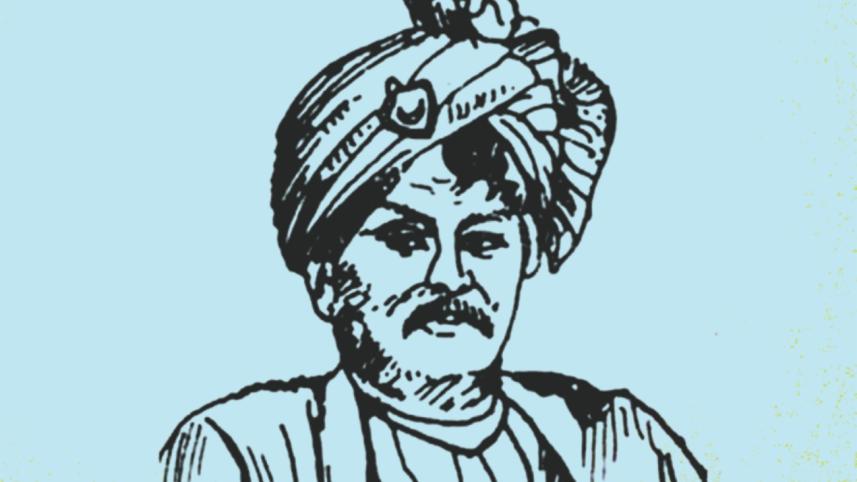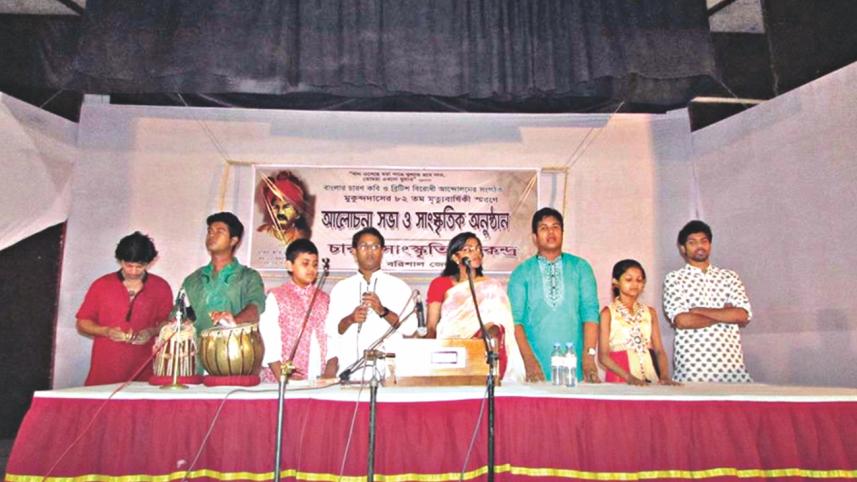Mukunda Das remembered in Barisal

Charon Kobi Mukunda Das was remembered at Aswani Kumar Hall in Barisal on Thursday evening, marking his 82nd death anniversary. Charon Sangiskritik Kendra arranged the programme.
Mukul Das, Nazrul Haque Nilu and Manisha Chakraborty addressed the programme. After a discussion on the life and work of Mukunda Das, songs of the poet were presented the programme.
Mukunda Das (born Yajneshwar Das, February 22, 1878 – May 18, 1934) was a poet, ballad singer, composer and patriot, who contributed to the spread of Swadeshi movement in rural Bengal. He was born in Bikrampur, but lived and worked in Barisal all his life. Inspired by a speech from educationist-reformer Ashwini Kumar Dutta against the proposed partition of Bengal, he composed a drama “Matripuja”, on the theme of patriotism and freedom movement. As his play gained popularity in the region, the government of newly-formed Eastern Bengal and Assam clamped down on it, citing incitement to violence. After the play was prevented from staging, he was arrested in 1908, and imprisoned for three years on charges of sedition. Mukunda Das joined Gandhi's non-cooperation movement in 1921 with his repertoire of dramas. When the movement was called off, Mukunda Das settled with his group in Kolkata. “Matripuja” was banned by the government at that time. He began to compose social plays in order to avoid being banne, but in 1932, the government banned all his plays – “Samaj”, “Adarsha”, “Palliseba”, “Sathi”, “Kormokhetro”, “Brahmacharini” and “Poth” being the notable ones.

After the ban, Mukunda was restricted to singing only. He along with his group performed only musical shows until his death due to ill health. His most famous songs – “Ekbar Bidaye De Ma Ghure Ashi” and “Bhoy Ki Morone” has inspired generations of patriots and revolutionaries after his demise.



 For all latest news, follow The Daily Star's Google News channel.
For all latest news, follow The Daily Star's Google News channel.
Comments